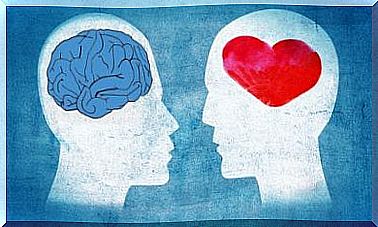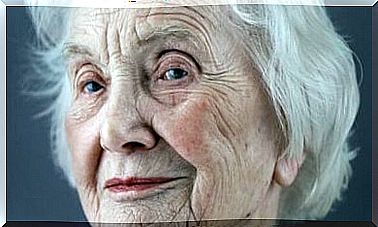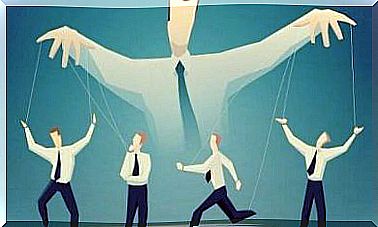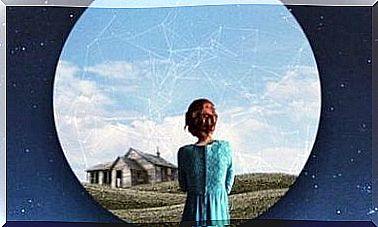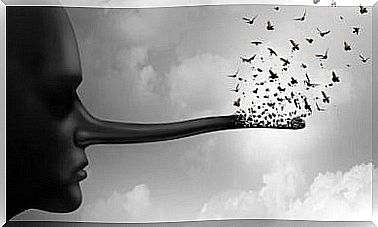Theories About Hunger: Why Do We Eat?

The time is 12:00 and you are hungry. You can feel the feeling of hunger rise with every passing minute. You must eat now! But at the same time, you’re actually pretty busy now, so you can not just disappear for lunch. Now it’s 4pm, it’s afternoon, and you’m not hungry anymore. How many times have you heard the phrase “I’m not so hungry anymore”? There are many theories about hunger that all point us to different answers to the question: Why do we eat?
The answer may seem obvious: Because we are hungry. But is it really that simple as that? In part, yes, but why is it that the feeling of hunger can also disappear? When you eat your favorite meal, why do you eat more than you really need to just get full? ” I’m not hungry anymore, but I love this food.” And, before you know it, you have eaten until you are full.
Through this article, we will present and discuss popular theories about hunger. These theories can give accurate explanations of our behavior when it comes to food, and can give us an answer to the question we asked ourselves in the opening of the article.
Theories about hunger: The set-point theory
The set-point theory attributes the feeling of hunger to a lack of energy. So, when you eat, you restore the optimal energy level. This is known as an energy adjustment point.
According to this theory, a person eats until they feel full and satisfied. Thus, they will stop eating because they have restored their “set-point”. This is how eating has thus achieved its function. As a result, this person will not eat again until his or her body has used enough energy to bring them below their “set-point” again.
The set-point system consists of three components:
- Adjustment mechanism: This mechanism is responsible for establishing the “set-point”.
- Detector mechanism: This mechanism identifies any deviations from the set point.
- Mechanism of action : This is the mechanism that will eliminate any discrepancies.

All set-point systems (Wenning, 1999) are negative feedback systems. In other words, the feedback that arises from changes in a particular direction provides compensatory effects in the opposite direction. We can usually find such systems in mammals, and their purpose is to maintain homeostasis.
If this theory were 100% true, you would stop eating when you reached your set point. But this is not always the case, is it?
Glucostatic set-point theory
In the middle of the 20th century , several scientists believed that people ate to maintain blood sugar levels. This is the glucostatic set-point theory. In other words, you eat when your blood sugar level drops, and stop eating when you restore it to normal levels.
Lipostatic set-point theory
According to this theory, each person has an adjustment point for body fat. Therefore, people eat to restore this fixed point.
Limitations of the set-point theory
The first limitation of these hypotheses is that they do not consider how things such as taste preferences, upbringing and social factors can affect how and why we eat.
Such as your favorite food or eating at social gatherings. Take a moment to imagine that your favorite food and another type of food that is not as appetizing are placed on the same table. You are probably not going to eat very much of the food you do not like. However, you will definitely eat large amounts of the food you like, even if you reach the point where you no longer feel hungry. In other words, it is possible to eat even when you do not feel hungry.
Lowe (1993) estimated that more than 50% of Americans have a significant excess of fat when they start eating. This fact also applies to many other people, who still have fat stored in the body and still feel hungry and eat. Thus, this point also shows that the set-point theories are incomplete.
If these theories were accurate, humans would not survive to this day. Pinel, Assand and Lehman (2000) stated that “S et-point theories of hunger and eating are contrary to basic evolutionary needs related to hunger and eating, as they are currently understood. ”
The authors explained that our ancestors needed to eat a lot of food, in case they could not get food at a later date. Therefore, they would store calories in the form of body fat. If the set-point theory were accurate, they would stop eating when the discrepancies were restored. But if they had nothing to eat, they would not have a calorie reserve.

A positive-incentive perspective
According to the positive-incentive perspective in theories of hunger, humans and other animals will not really be motivated to eat due to a loss of energy. Instead, they are motivated by the expected pleasure that comes from eating, or a positive incentive (Booth, 1981).
This theory suggests that hunger stems from the historical pressures we have suffered, due to food shortages. So, rather than lack of energy, it is what causes hunger or the presence of appetizing foods or just the thought of it.
Your hunger level depends on the interplay between different factors:
- Taste.
- What you have learned about the effects of food.
- The time that has passed since you last ate.
- The amount and type of food you already digest in the gut.
- Whether there are other people nearby or whether you eat alone.
- Your blood sugar level.
Theories about hunger: Not everything is as it seems
In this overview of important theories about hunger, we have seen that the answer to why we eat is not as simple as first thought. Something as common and regular as eating is not so easy to explain. This is because we not only eat when we are hungry, but also because we like the taste of certain foods.
On the other hand, Jamie Silva (2007) emphasized that emotions and mood swings can also affect our food consumption. According to Silva, “ On the one hand, emotional states and moods can affect eating behavior. On the other hand, food can also change emotions and moods . ”
How many times have you eaten more than necessary to try to relieve anxiety ? Or how many times have you stopped eating because of it? Hunger is without a doubt a topic that is very interesting, and further research may provide clearer answers to why we eat.
